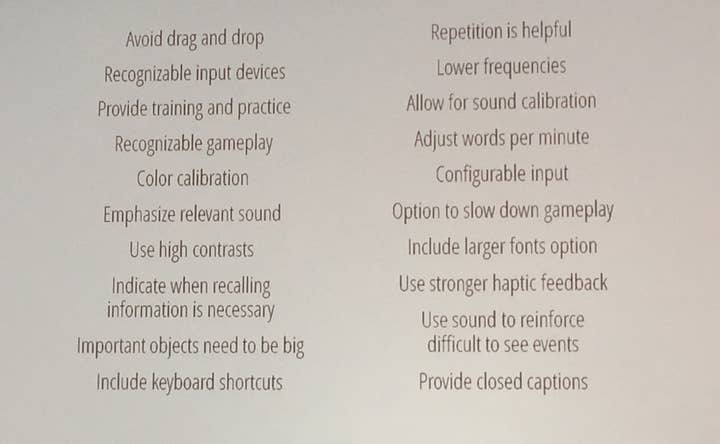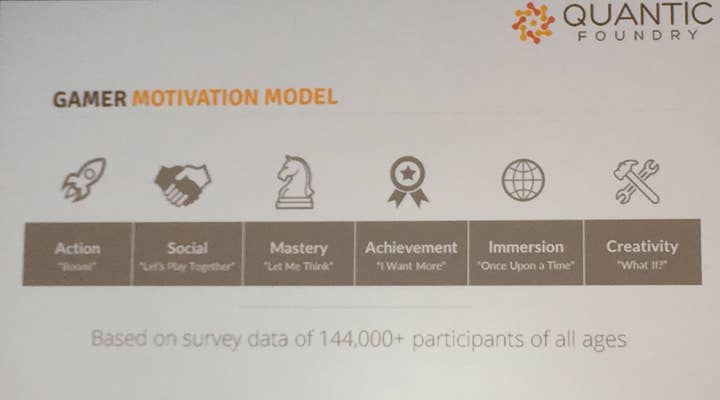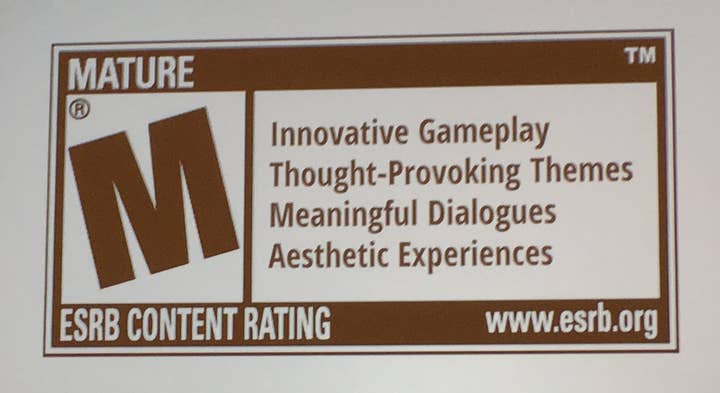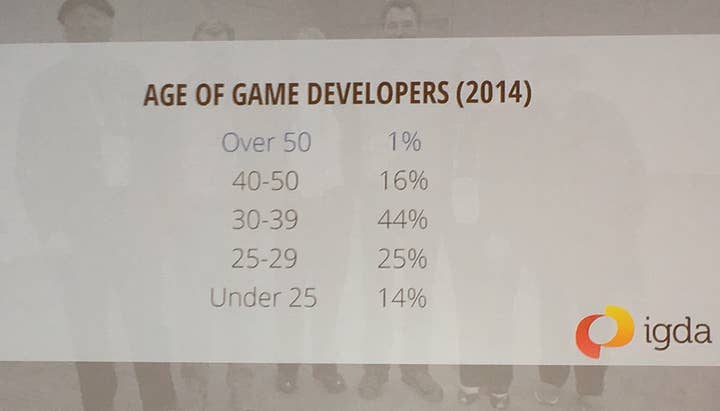Beyond ageism: Industry must think about older gamers
The young gamers of today will become the old gamers of tomorrow, and this could be a very real opportunity for the business, says Prof. Bob De Schutter
"There is a need for creating games that can be played by a more physically challenged, aging segment of the population. I have no doubt that the creative designers will respond in time."
That's a quote from the father of video games and Magnavox Odyssey creator Ralph Baer. He understood what many developers in the modern industry have thus far mostly ignored: older people enjoy playing games too. At a GDC talk today, Miami University professor Bob De Schutter discussed the implications of an aging player crowd.
"I'm going to talk about the 65-year-old version of me. He is seriously frustrated with the games that are being marketed," he began. De Schutter explained that older adults will become one of the largest groups among players in the future. As it stands now, the average age of a person playing games is around 35 (according to the ESA) and 27 percent of gamers in the US are currently over 50. Pew Research has found that 40 percent of 50-64 year olds play games, and the ISFE (Interactive Software Federation of Europe) found 27 percent of people between 55-64 play games in Europe. The IGEA (Interactive Games & Entertainment Association) found 51 percent of people between ages 55-64 play games across Australia and New Zealand, and 41 percent of 65-74 year olds. "I would estimate right now about 26 million gamers in the US between 50-64 and 11 million are older than 65," said De Schutter.
Those are already some fairly large numbers and the games industry largely does not cater to their needs. The older people today did not grow up with games, but what happens when the younger people today who did live with games their whole lives enter their golden years? De Schutter said there could be 105 million US gamers over age 50 in the near future. And not all of these people will have the complete abilities to play games the way they used to.
Looking at current data 36 percent of 65-year-olds and up have a disability, any disability. 23 percent have an ambulatory disability, 15 percent have hearing difficulty and 9 percent have vision difficulty. De Schutter pointed to Gameaccessibilityguidelines.com from the IGDA, as a great resource for developers. There's a very real possibility that some older players will want to play but won't be able to use a controller fully or might not even be able to turn on a console without a caregiver's help.
De Schutter stressed the importance of accessibility and content. Far too often today, there's been a focus on brain games or things that are supposed to help seniors, but not only is there no evidence of it helping to prevent cognitive decline, but the games are not that interesting, he said. Ultimately, these games are being sold based on fear of decline, and they're not drawing on older players' other motivations to play. He referenced one 70-year-old who got really, really good at Trackmania and beat De Schutter regularly because he just practiced and practiced. De Schutter said that developers should not get the idea that older players don't like challenge because many do. It's more about accessibility and adjusting interface design (see list of tips below).

"How would you feel if every game out there stereotyped you. I guess every female gamer in the audience knows what I'm talking about," he said.
De Schutter pointed to research from Quantic Foundry, which examined gamer motivation. The research pointed to people over 50 enjoying games that offer adventure, role playing and intellectual challenge. Baby Boomers like online games as well because they seem to enjoy games that let them escape into another world (which could make VR potentially appealing as well).

There are actually adult playgrounds for seniors being built around the world. It's human nature for anyone to want to play, and so game developers need to figure out how to keep older players engaged. De Schutter's big focus is looking at Geronto-Aesthetics, which involves six key areas: cultivation (playing games for personal growth), contribution (playing games that give something back to society), connectedness (playing games as a shared experience with cherished people, people you can bond with like grandchildren), compensation (games to replace unavailable activities, e.g. playing Madden to compensate for lack of sports), contemporaneity (games keeping up with the times), and nostalgia (games as a conduit to the past). Adding any or all of these components to games could result in a product that's far more appealing to older adults.
De Schutter broke down the types of older gamers that exist and the reasons that they play, but generally speaking the biggest things he's seen with older gamers is that they enjoy games that are designed for a rich life history, games that utilize crystalized intelligence (not fluid intelligence, which is what most games require), and games that let a person use his/her imagination (graphics are much less important than drawing on personal fantasy).
Importantly, the industry needs to be better with mature content and themes (not mature as in violence rated by the ESRB, but serious subject matter). De Schutter acknowledged that many indies are doing this today, but the industry needs much more and it's the kind of content that should appeal to older people; he cited Papers, Please as a great example.

Another pro-tip: design for intergenerational play. "Really go for it," he said, "because it's so often that the younger players get the older ones to play in families."
And finally, he noted that there need to be older developers, too. As developers age, if they keep designing games, they'll want to make content for older individuals.


